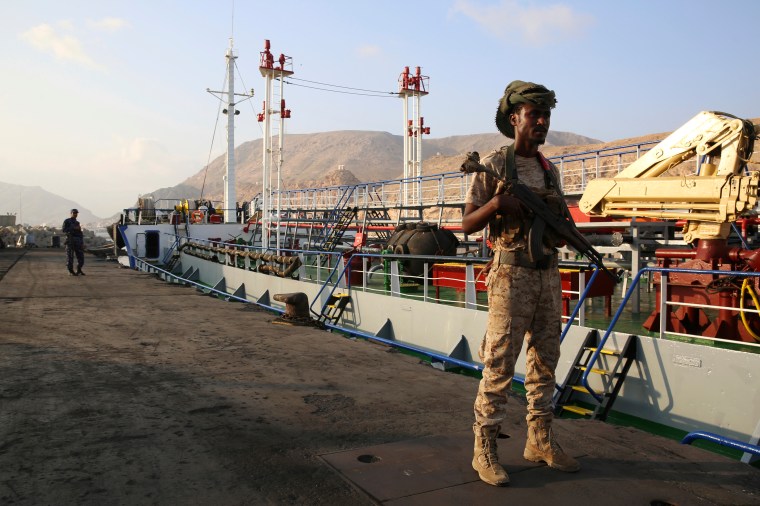Authorities in Hadramout Governorate, Yemen, in late September 2020 threatened to file a number of charges against Yemeni journalist Mohammed al-Yezidi, and he went into hiding after unknown individuals twice tried to abduct or detain him, al-Yezidi told CPJ via messaging app.
Authorities in Hadramout—who are aligned with the Yemeni government—repeatedly attempted to arrest al-Yezidi, a reporter for the independent Yemeni TV channel Belqees, at the end of September and beginning of October, al-Yezidi told CPJ via messaging app. Al-Yezidi covers local news in Hadramout Governorate, including politics, security, and economic issues, he told CPJ. Al-Yezidi said he believes the arrest attempts are in retaliation for his reporting on the deterioration of local infrastructure and local authorities’ mismanagement of public works plans.
Al-Yezidi told CPJ that armed individuals in two civilian vehicles without license plates drove around his neighborhood and asked local residents his whereabouts on September 18. That same day, al-Yezidi said that the same two cars pulled over his older brother while he was driving al-Yezidi’s car, looking for the journalist. Al-Yezidi added that he was the subject of a second attempted arrest two days later, after which he left his house and went into hiding.
Al-Yezidi said that he learned through friends who had contacts with local intelligence and security forces that Hadramout Governor Faraj al-Bahasni had ordered his arrest, but he did not know at that time what the reasons were. Al-Yezidi added that after the Yemeni Journalists Syndicate reported on Hadramout authorities’ harassment of him, on September 21, 2020, security forces in Mukalla, the capital of Hadramout, detained his older brother Hussein for a week.
According to al-Yezidi, his lawyer told him that Hadramout authorities are threatening to charge him with insulting the army, inciting chaos, insulting local officials, and contempt of the governor. Al-Yezidi told CPJ that he is also facing additional, unspecified charges in the Public Funds Court over his writings on the deterioration of local roads and infrastructure. He told CPJ that as of mid-December 2020, the authorities had yet to announce any formal charges.
CPJ sent an email to Hadramout Governor al-Bahasni requesting comment on whether al-Yezidi is facing charges and whether forces under his command attempted to arrest him, but did not immediately receive a response.
The charges against al-Yezidi come amid broader action against Yemeni journalists in Hadramout Governorate. The Yemeni Journalists Syndicate, in an October 23, 2020, statement sent to CPJ via WhatsApp by syndicate co-chair Nabil Alosaidi, condemned authorities’ harassment of al-Yezidi and in the same statement expressed concern over authorities’ pursuit of Akhbar Hadramout editor-in-chief Imad al-Dini. According to the syndicate’s statement, authorities in Mokalla, the capital of Hadramout, opened a criminal investigation into al-Dini. CPJ is investigating whether al-Dini is facing charges.
In an October 13 statement sent to CPJ via WhatsApp by Alosaidi, the syndicate also condemned Hadramout military authorities’ broader threats against journalists. According to a statement posted on the Facebook page of the Hadrami Elite Forces’ Second Military Region on October 12, 2020, the military leaders, under the control of General Saleh Ahmed al-Ahmedi, the governorate’s representative for security and defense affairs, warned journalists to focus on accomplishments within the governorate and avoid “political and media conflicts that only serve Hadramout’s enemies.”
